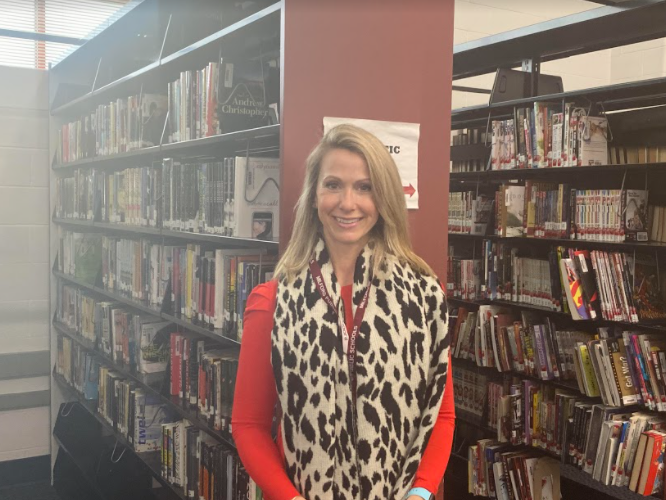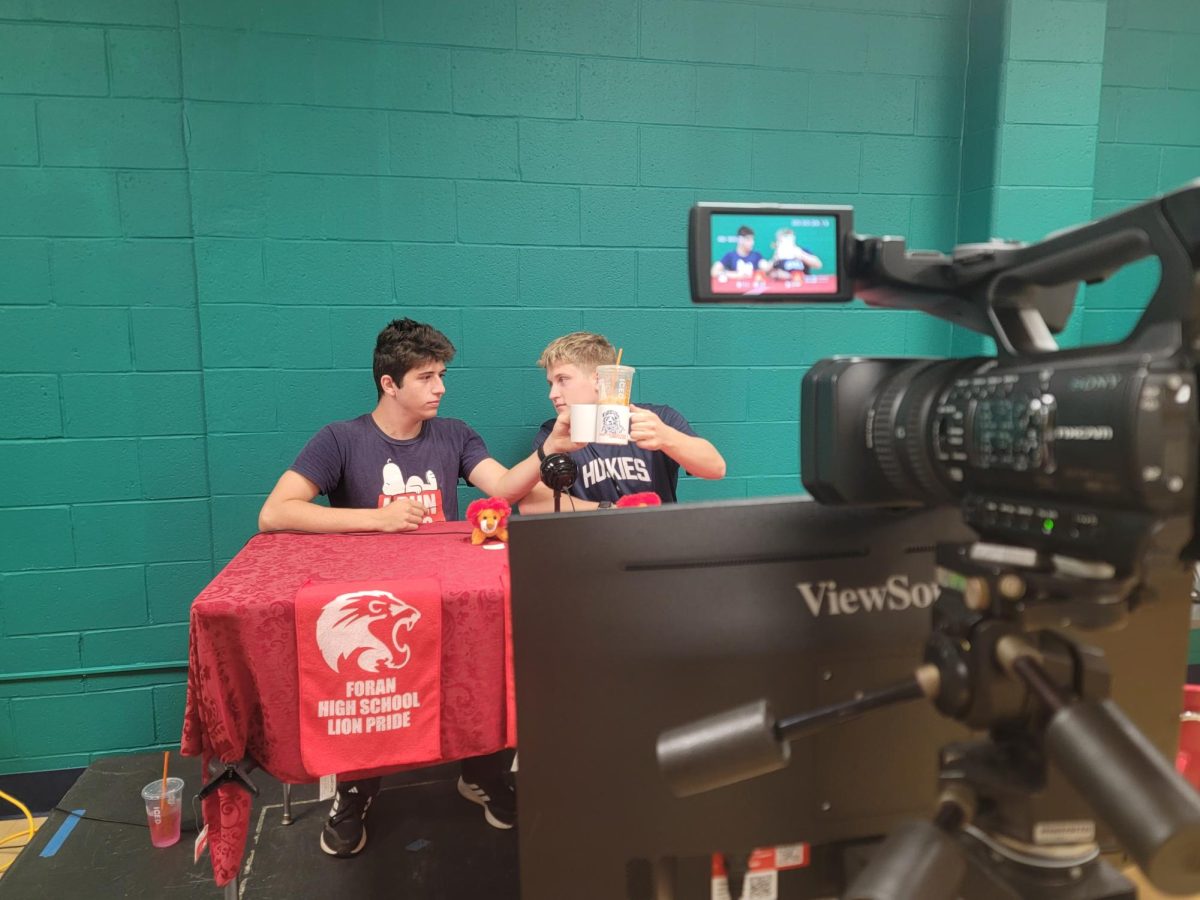The Benefits of Reading for Teens
Foran Reads: Jaclyn DeLoma, the new Media Specialist poses in Foran’s library. (Photo courtesy of Olivia Salai, February 16, 2021.)
March 4, 2021
Many students vividly remember their weekly trips down to their school’s media center back in elementary school. They could let their imaginations run free and escape into a make-believe world, or explore a topic of personal interest in the non-fiction section. As students progress into middle and high school, libraries become less about reading and more about last-minute printing jobs and checking out books for research projects. If a child-like love of reading is channeled, there are many benefits that students can reap.
Reading is linked to an increased SAT score. According to College Board, it builds up grammar skills and recognition of prefixes and word endings, which would therefore increase scores if kids tap into this prior knowledge. In addition to the obvious benefits to the Reading, Essay, and Writing portions of the SAT, the Math section of the test also incorporates literary elements that would be bettered by habitual reading.
“Students lacking extensive reading experience might experience confusion with difficult phrases in a particular question, even if they generally excel in math,” says theclassroom.com. Teens who make an effort to read often might be able to deduce the right answer to a question simply by context clues in the sentence, even if their talents don’t lie within language arts.
Whether teens read fiction and familiarize themselves with complex words or dive into a nonfiction topic that intrigues them and learn new facts, any type of reading makes for a more knowledgeable student, according to Danielle Valenzano, a librarian at the Milford Public Library. Beyond increasing intelligence, reading affects how people view and understand the world they live in, and may even change their perception of society entirely.
Other benefits stemming from reading regularly include boosted vocabulary and comprehension, enhanced writing skills, and increased focus, memory, and articulation.
“Being articulate and well-spoken gets you ready for the ‘real world’, post-high school- whether you choose college, a trade school, or to get a job,” says Valenzano.
No matter where teens end up, reading will always be a part of their lives.
“Reading is an integral lifelong habit embedded in every content area and success in any career field or with any subject…” says Jaclyn DeLoma, Foran’s media specialist. Even if students believe their career won’t require polished reading and writing skills, most, if not all, fields expect proficiency in these areas, so it’s best to create a routine of reading often to ensure good habits are formed.
Outside of the academic realm, reading actually has many psychological benefits. A study published in Science suggests reading fiction is correlated with increased self-reported empathy. By experiencing an up close and personal look at a character’s struggles, teens can begin to put themselves in other people’s shoes more often. Avid readers are also 2.5 times less likely to develop Alzheimer’s disease, says an article published in the Proceedings of the National Academy of Sciences of the USA. This mental exercise puts those who read at an advantage over those who partake in less stimulating activities.
Stress is often a given in many kids’ lives, but escaping into a book is proven to be a release from this pressure. A 2009 study by the University of Sussex discovered reading for only six minutes reduces stress levels by up to 68%. So, when stress begins to set in, open up a favorite comfort book and dive in!
The Reading Agency also found reading for pleasure benefitted relationships with others, and also alleviated depressive symptoms. Covid-19 has certainly not helped anyone’s mental state or connections with others, but reading may aid healing of these issues.
Many teens are convinced reading is a chore. DeLoma advises these students to “carve out the time to consider topics of interest to them and begin with reading shorter articles or stories contained in any format, such as e-books or audiobooks in addition to print.” She believes finding an encapsulating book that “draws you in” is more important than liking reading in general.
Foran students have many literary resources available to them. The Foran Library has a wide array of print books, e-books, audio books, etc at students’ disposal. Teens can check out books here. To provide literature and other resources in a safe manner, the Milford Public Library has adopted an online platform via the Acorn Catalog app. This app lets people view any fines they owe or overdue books that need to be returned, search within the library catalogue, and review or renew any books they’ve checked out. Students can even request digital library cards for instant access to the library’s e-content.








